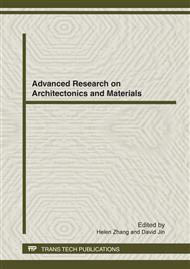p.51
p.55
p.60
p.64
p.70
p.74
p.78
p.83
p.88
Study on Corrosion Resistance of Brass in Circulating Cooling Water with Different Concentration Ratio
Abstract:
Abstract: The corrosion resistance of brass H70-1A cooling water was studied through weight-loss method and electrochemistry measurement in different concentration ratio condition. The results obtained from this study showed that brass inhibitor was necessary to add to circulating cooling water system when concentration ratio was in the range of 3~7.
Info:
Periodical:
Pages:
70-73
DOI:
Citation:
Online since:
April 2012
Authors:
Price:
Сopyright:
© 2012 Trans Tech Publications Ltd. All Rights Reserved
Share:
Citation:


